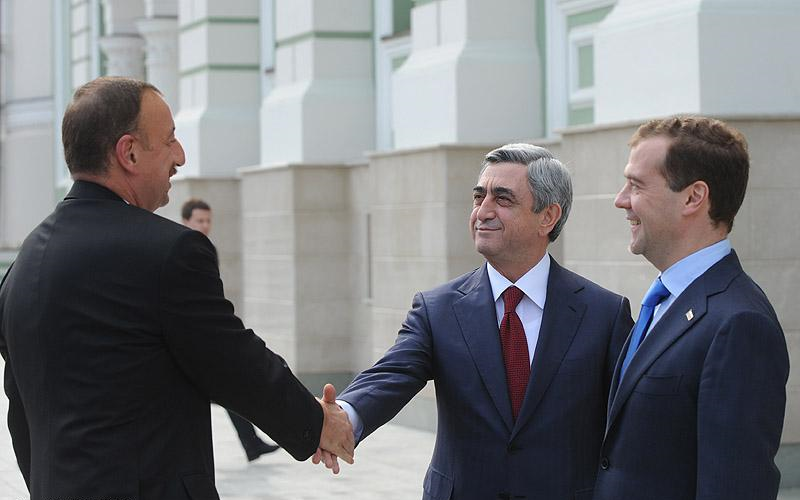Kazan postpones Karabakh solution as Azerbaijan again threatens war

EuFoA call:
Europe should prepare now and consider more options to deter from war and to incentivise peace. This way, a diplomatic breakthrough will become more likely.
Europe should stop the well intended “calls upon both sides” and instead name and shame each side for their contributions to the escalation. Otherwise, this invites for more escalation.
Europe should see that the arms race around Karabakh has produced a different situation compared to 1991, when the conflict parties mainly used leftovers from the USSR army. A new war today would most likely come with human losses and a geographic scope incomparable to 1991, or to the Georgian-Russian war in 2008.
Europe should realise that a new war would most likely come with sever damages to European investments in Azerbaijan’s oil and gas industry and to the energy supply from Azerbaijan at large, including consequent increases in worldwide crude prices.
Europe should read the Azerbaijani leadership’s statements and watch the Azerbaijani armament in order to understand that hostility against the Karabakhi population, which they do not consider their population but merely on their territory, is not some theory but Azerbaijan’s implemented state policy. This hostility is currently the key obstacle for a diplomatic solution.
Background on Kazan:
(based on reports from various sources close to the negotiations)
• The Azerbaijani President Aliyev suggested 10 last minute conditional amendments to the text, most of which the Foreign Ministers had been working on before and had already resolves or agreed to exclude.
• Armenia refused to re-open the box and the climate was “even if you now agree to some changes, Azerbaijan will present new last-minute conditions”.
• As a minimum but vital result, the parties agreed on a few details and to continue the trilateral negotiations still this summer.
Even the Sochi agreement of March 2011, to allow OSCE investigations into each incident on the line of contact, has so far not been implemented amid obstruction by Azerbaijan.
General background on the conflict:
For decades, the predominantly Armenian population in Karabakh has suffered under a discriminatory administration from Azerbaijan, to which their land was illegally allocated by Stalin in July 1921. When they tried to make use of the new rights offered by Glasnost and Perestroika and launched an independence bid, new repressions from Baku and defence measures from the Karabakhi population escalated into war. The first troops, artillery and tanks to enter Karabakh were Azerbaijani, which were fought back with Armenian support. The war ended in 1994 with the Bishkek Ceasefire which was negotiated by the OSCE Minsk Group and is open ended and binding under international law. Since then, the OSCE is seeking to broker agreements to allow for trust-building (e.g. sniper removal and OSCE investigations into sniper incidents) and peace (Madrid Principles).
Please clikc here to download the Press Release in pdf format.
News Roundup
Subscribe to our news roundup to get news on your email.
